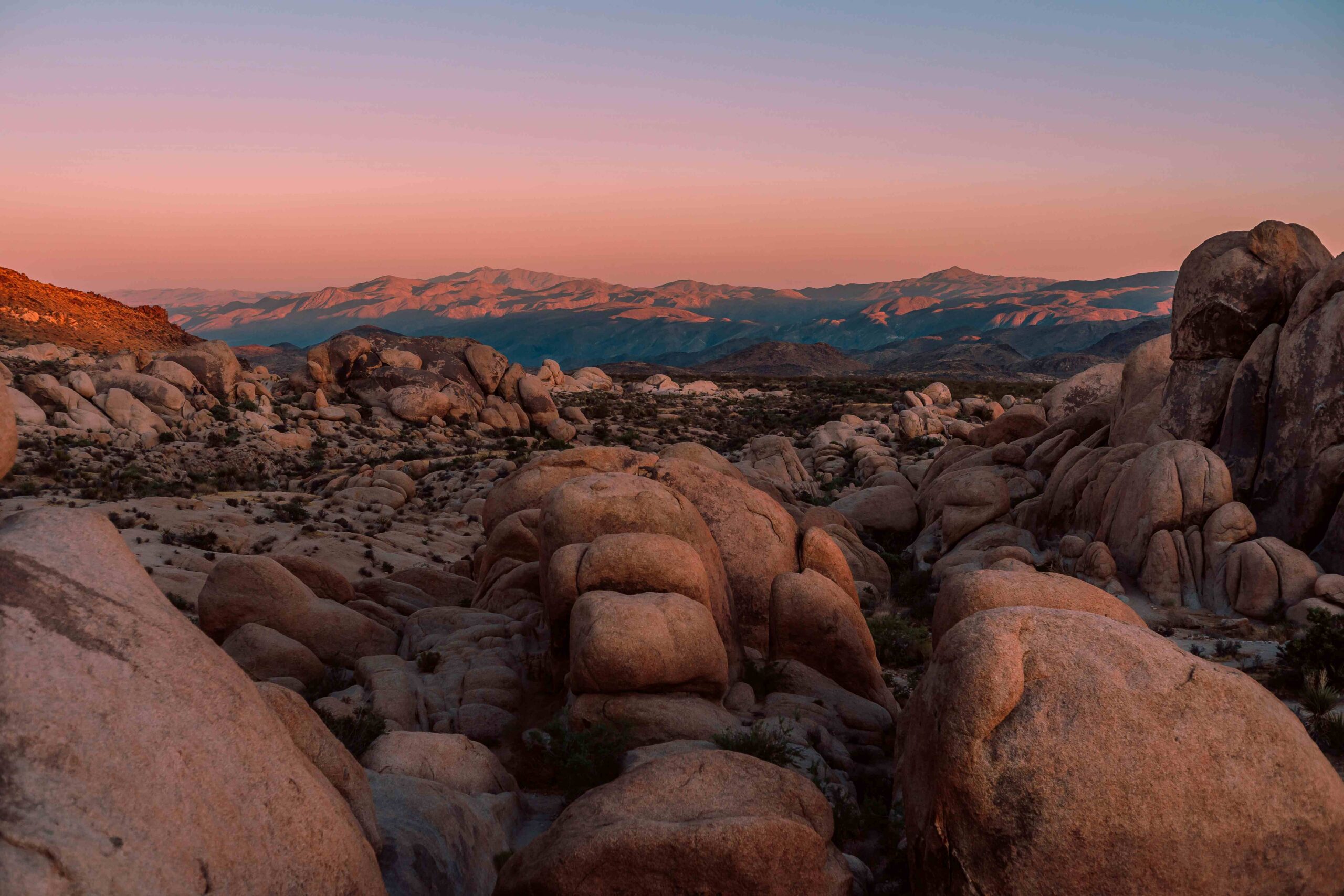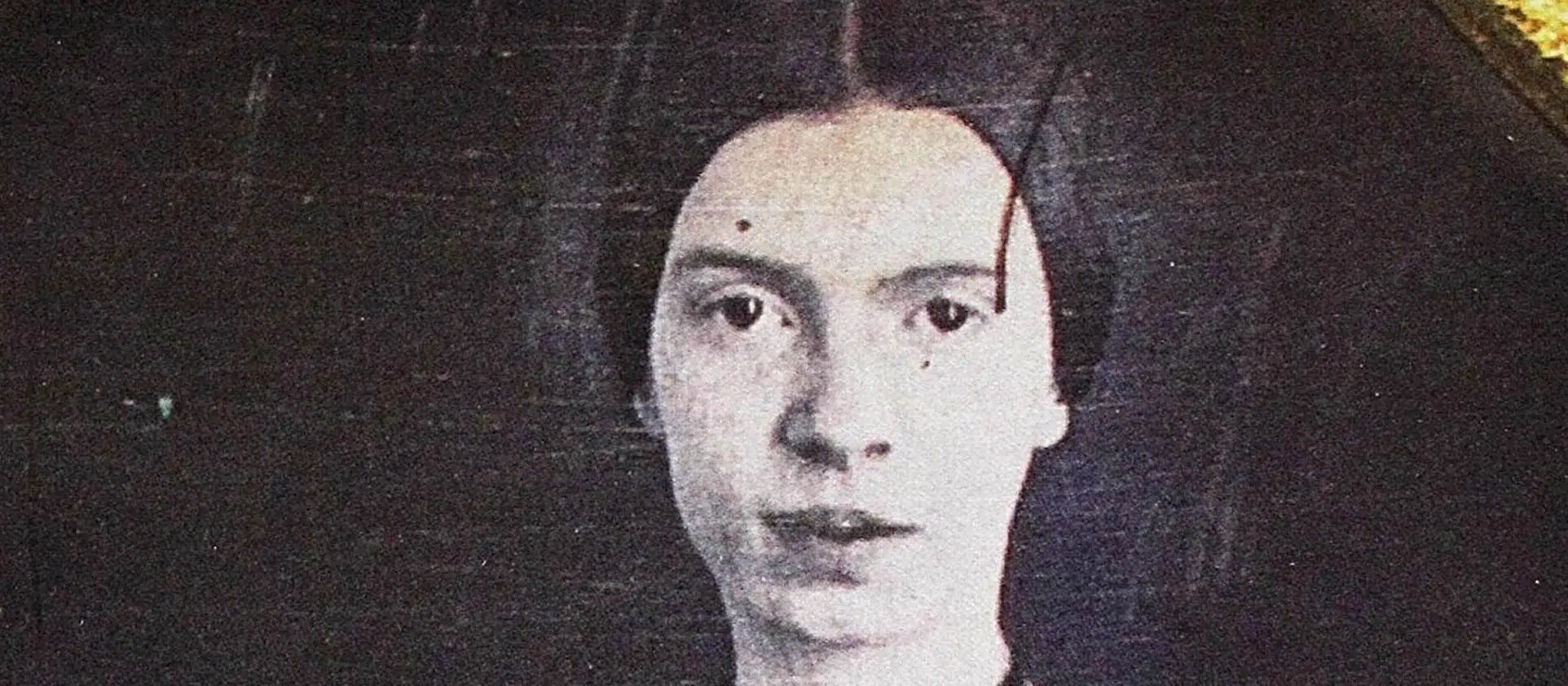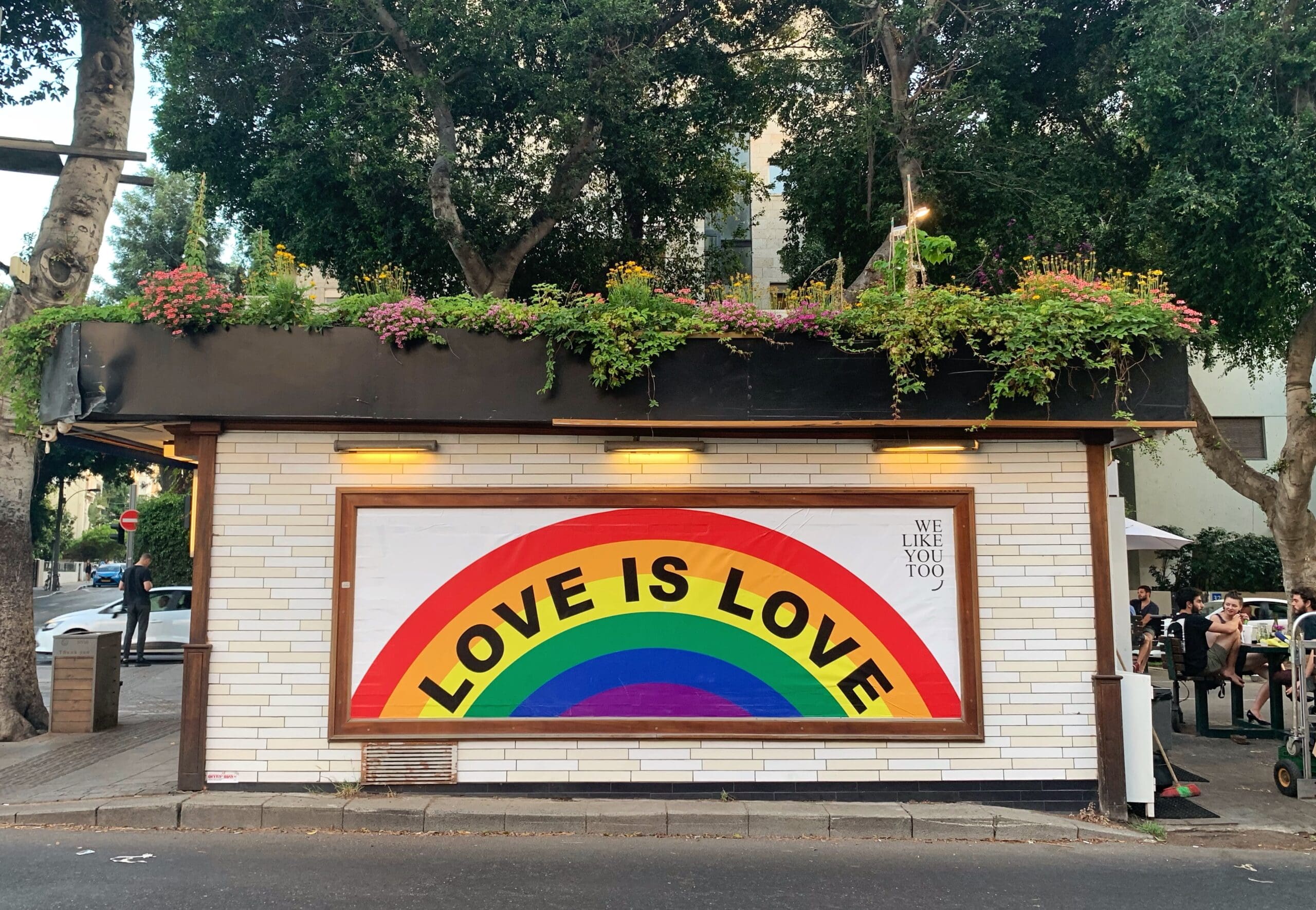Empowering The Rainbow: How to Fight The Normalization Of Toxic Masculinity
Author’s Memo
Over the past five years, the English classroom teacher has faced a crisis in education brought on by not only the divisive political climate but also legislation changes that have normalized discrimination against marginalized groups. I use autoethnography in order to provide first-hand observations in the predominantly conservative English classroom as a way to analyze and understand a rise in toxic masculinity and its detrimental impacts. I will illuminate the importance of avoiding neutrality on this issue, which would further normalize this cultural shift. It is crucial for English teachers to combat this issue and provide diverse learning experiences that support multicultural students to reinforce acceptance and humanization as a goal because teachers have a vast influence that makes them essential to social change and advocacy. English teachers are especially armed with narratives to combat dangerous false narratives and discriminatory societal trends.
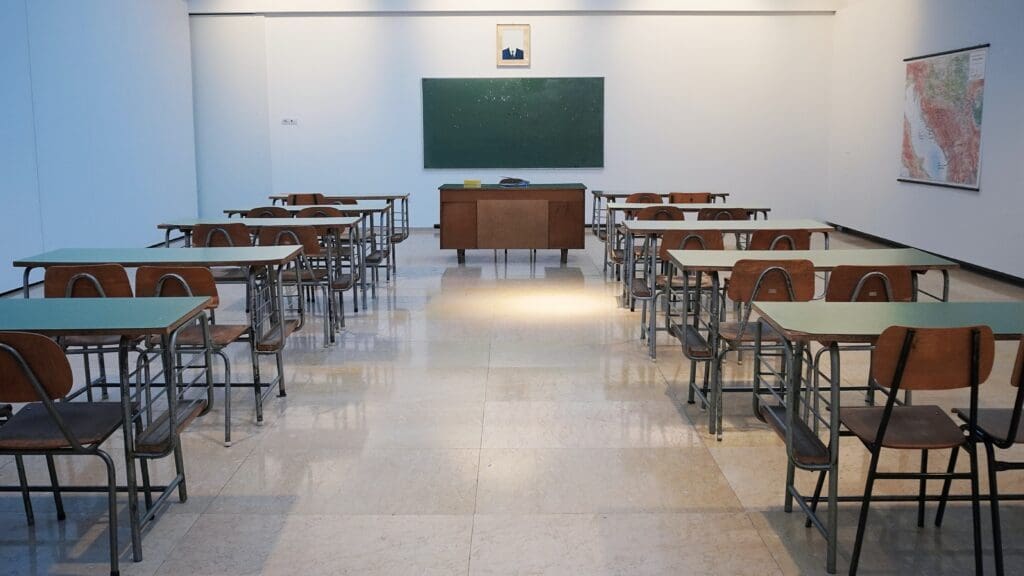
Empowering The Rainbow: How to Fight The Normalization Of Toxic Masculinity
“You’re not going to believe what I heard,” started this journey. After class, a student came to me in confidence about his concern with the school. He told me his mother, who worked in the school office, informed him that a “transgender student would be transferring to our campus.” To say I was in shock is an understatement. I had dealt with homophobia and transphobia in the past, but this was the first time a student approached me as if discrimination was normal and also accepted widely towards transgender people. Honestly, I did not even know how to begin addressing this student. I was frozen between a moral dilemma and unpreparedness to handle this interaction. I wanted to pounce on this issue as a social justice advocate, but being unprepared to respond kept me silent.
‘He told me his mother, who worked in the school office, informed him that a “transgender student would be transferring to our campus.”
This defining moment in my career made me recall a common complaint among teachers at my school. Just days before this student interaction, during a lunch meeting, my colleagues voiced concerns about some of their male students bragging about Andrew Tate. Teachers were beginning to see a change in their male student’s behavior in response to this celebrity, and they did not know how to address it. They claimed that a growing number of their male students were displaying misogynistic, homophobic, and aggressive behaviors. Upon reflection, I realized that there had been a significant shift in the social climate of my classroom. As I was finishing my graduate degree, my thesis class led me down a path that allowed me to explore my personal experience with this issue as a teacher through autoethnography which furthered my understanding of what is happening and what we need to do as teacher allies.
‘As I was finishing my graduate degree, my thesis class led me down a path that allowed me to explore my personal experience with this issue as a teacher through autoethnography which furthered my understanding of what is happening and what we need to do as teacher allies.
Over the last five years, I noticed a significant change in the way marginalized groups are treated. It became glaringly true last year. I started to notice shifting narratives that dangerously labeled some of my students. What I was witnessing was a slow change that was boxing my LGBTQ+ students into a category of monstrosity. I work in a high school located in South Florida. My geographical location makes me vulnerable as a teacher. I could be charged with a felony for teaching about oppression based on race, religion, or gender due to the recently passed bill: SB 148. Some know it as the “Don’t Say Gay Bill.” Many read this bill and think it only impacts the younger grades; however, it reaches up through the twelfth grade.
Recently, I spoke with a colleague who informed me that the administration in her school was asking that they take down the LGBTQ+ stickers that display a rainbow with the text “All are welcome here” from their doors. Administrators were concerned with the new law and did not want to have any issues during walk-throughs. This is an example of the self-censoring that is occurring in response to the recent legislation. This is a huge problem. Teachers are obeying orders and staying quiet in order to protect their livelihood. I’ve been there. I have to own that. But what message does this send? What impacts does this have?
‘What I was witnessing was a slow change that was boxing my LGBTQ+ students into a category of monstrosity.
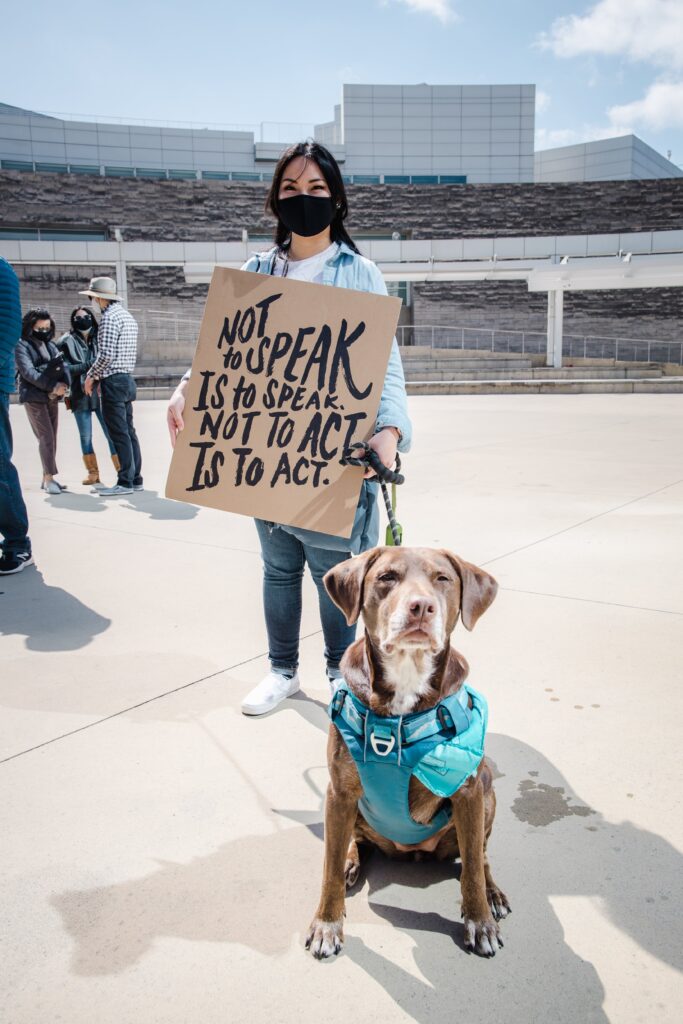
For my students, if the Florida law says that it is wrong to talk about gay people, then why wouldn’t they feel it is wrong to oppose them publicly? These tactics are working. High school males are displaying an increase in aggressive, homophobic, transphobic, racist, and anti-feminist viewpoints. Furthermore, the current political situation and censorship are propagating this behavior and creating a culture that is normalizing these toxic behaviors. These changes are rewriting the narratives. I see these strong hateful narratives changing the landscape of our world that was once moving towards a more inclusive and diverse world. The younger generation of today is becoming more traditional than their predecessors. It all goes back to a sharp rise in toxic masculinity that is being propelled by those that are not only belligerent but also persistent.
Teachers are witnessing a cyclical pattern of white male reactionary violence that has occurred throughout history in response to inclusive cultural movements. This response is being instigated by far-right rhetoric that started with the election of Donald Trump. Education debates have been reemerging since the publication of The New York Times’ 1619 Project. These political events are rousing a response that has triggered legislation in some states that have created gag orders on teachers, perpetuating a normalization of discriminatory behaviors that are silencing voices and impacting the way teachers teach Literature and History.
‘High school males are displaying an increase in aggressive, homophobic, transphobic, racist, and anti-feminist viewpoints.
Political leaders are not the only voices being heard. My students are hearing these messages through social interactions, media outlets, and celebrity influencers. This is becoming a new accepted ideology for many students. To put the final nail in the coffin, educators are silent. Indifferent. This sends a deeper message that this behavior is acceptable. Educators are functioning in a dangerous space between light and darkness. Educators are unknowingly contributing to this terrifying problem. Teachers face with the question: Do I save myself or a whole future generation of students who will influence the outcomes of society? This is the moral dilemma the government and political climate are forcing teachers to face. This is why it is important for us to collaborate and come together to fight injustice. We must be louder than the hate. Neutrality breeds more hate and exclusion.
The younger generation of today is becoming more traditional than their predecessors. It all goes back to a sharp rise in toxic masculinity that is being propelled by those that are not only belligerent but also persistent.
I spent my entire life being defined by society’s narratives. These bestowed misrepresentations came with loaded tales that required the world to receive me in a designated way. I was white trash. I was poor. I was a teen mom. These stories defined my value. What I learned is that stories are only as true as you make them. Stories gain power through those who tell them. Put a story in the right hands, and you have changed the world. Despite society’s narratives of my failure, I persevered and succeeded in my life. I rewrote the story. I was able to become a teacher, earn a graduate degree, and provide a good life for my daughters. My experience taught me that in order to change the narrative, you must be loud. You must be persistent. You must be unstoppable. It isn’t easy, but we can do it.
However, statistically overcoming these societal boundaries is nearly impossible. We are social creatures that bend to the invisible laws put in place to keep us dull. This is where allies come in. We must be allies. My story led me into the classroom. I wanted to help students with stories like mine. I wanted to help them write their own narratives and defy the odds. I went into the teaching profession to fight for the marginalized that are defined by a cruel world and put into tight boxes that only stagnate their growth. I wanted to empower them.

My students are hearing these messages through social interactions, media outlets, and celebrity influencers.
High school students, who are vulnerable and insecure about their place in the world, will not challenge the social order if it means losing their security. This is why there is a desperate need for teachers to ensure that the cultural and social norms in the classroom uphold inclusivity and the support of a diverse student body. It is our responsibility to be the educated adults in the room who guide and educate students to go out into this diverse world with the ability to accept those who are different from themselves and learn to negotiate productively and humanely. Neutrality will permanently normalize dangerous toxic masculinity, which is already quickly infiltrating the social sphere. As educators, we need to proceed in the classroom with confidence in our intellectual abilities to navigate these murky waters. We must avoid falling into the habit of taking the easy road.
‘To put the final nail in the coffin, educators are silent. Indifferent. This sends a deeper message that this behavior is acceptable.
Throughout history, teachers have been experts at pivoting when a crisis hits. When school shootings increased, they became police officers through active shooter training. When new laws about testing began, they learned new ways to meet requirements and still bring joy into the classroom. When covid hit, with little notice, they adapted and also recreated a whole new way of teaching curriculum to students through a screen. Now, as the political climate continues to impact the classroom, it is just the next set of challenges that needs a response to ensure the security, safety, and inclusion of a multicultural study body. Instead, I am witnessing teachers cowering to the political and parental backlash upon them during these tumultuous times. It is understandable why this is occurring, but educators must be empowered to combat this dangerous wave of divisive rhetoric.
Educators must understand their complex world in order to to contribute to a wholesome and humane future. Dangerous ideology can grow substantially in a globally connected world. Changes can happen to any group, and it is crucial that teachers can identify and understand the severity of these dangerous societal changes. As educators, we must use narrative to propel the good to promote fairness. As researchers and social justice advocates, we must support fellow teachers in handling these societal changes to prevent them from becoming indifferent contributors to injustice. In order to give rise to a rainbow, one must brave the storm. And I don’t want to live in a gray world without rainbows.
We must empower the rainbow.
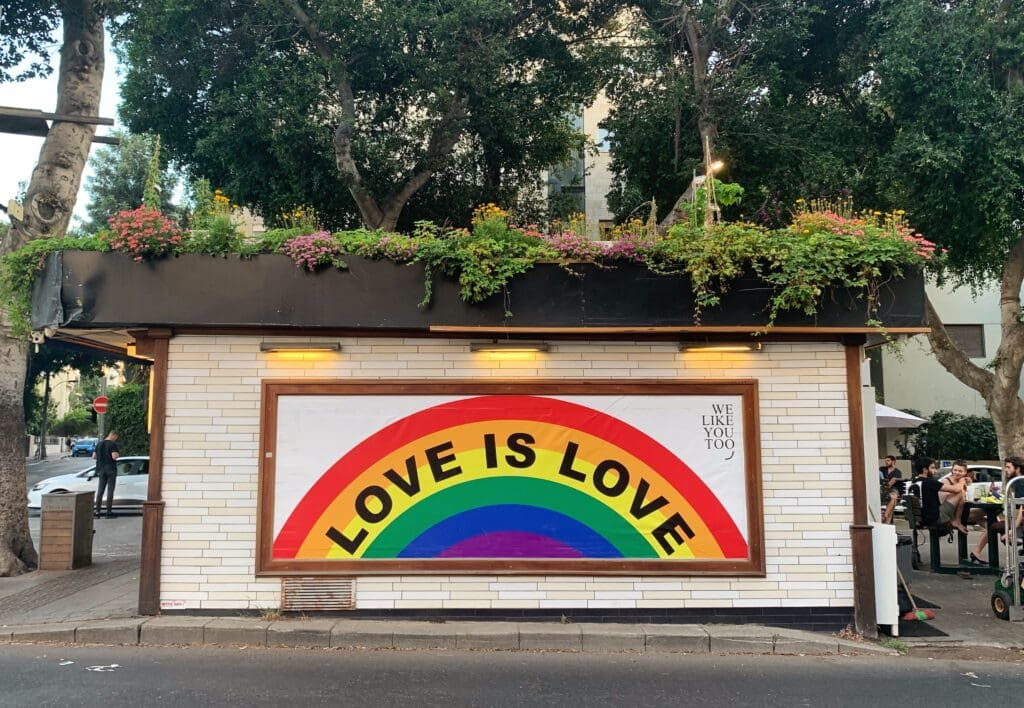


Credits
Featured image by Yoav Hornung on Unsplash
Image of a classroom by Ivan Aleksic on Unsplash
Photo of a woman and a dog by Jason Leung on Unsplash
Photo of sunset by Mohamed Nohassi on Unsplash
Image of a rainbow by Yoav Hornung on Unsplash
Learn More
New to autoethnography? Firstly, please visit What Is Autoethnography? How Can I Learn More? to learn about autoethnographic writing and expressive arts. Interested in contributing? Secondly, view our editorial board’s What Do Editors Look for When Reviewing Evocative Autoethnographic Work?. Accordingly, check out our Submissions page. View Our Team in order to learn about our editorial board. Please see our Work with Us page to learn about volunteering at The AutoEthnographer. Lastly, do visit Scholarships to learn about our annual student scholarship competition.
Nicole Shim has been a high school English teacher for over a decade. She resides in South Florida with her husband and two daughters. She seeks to empower the voiceless.


